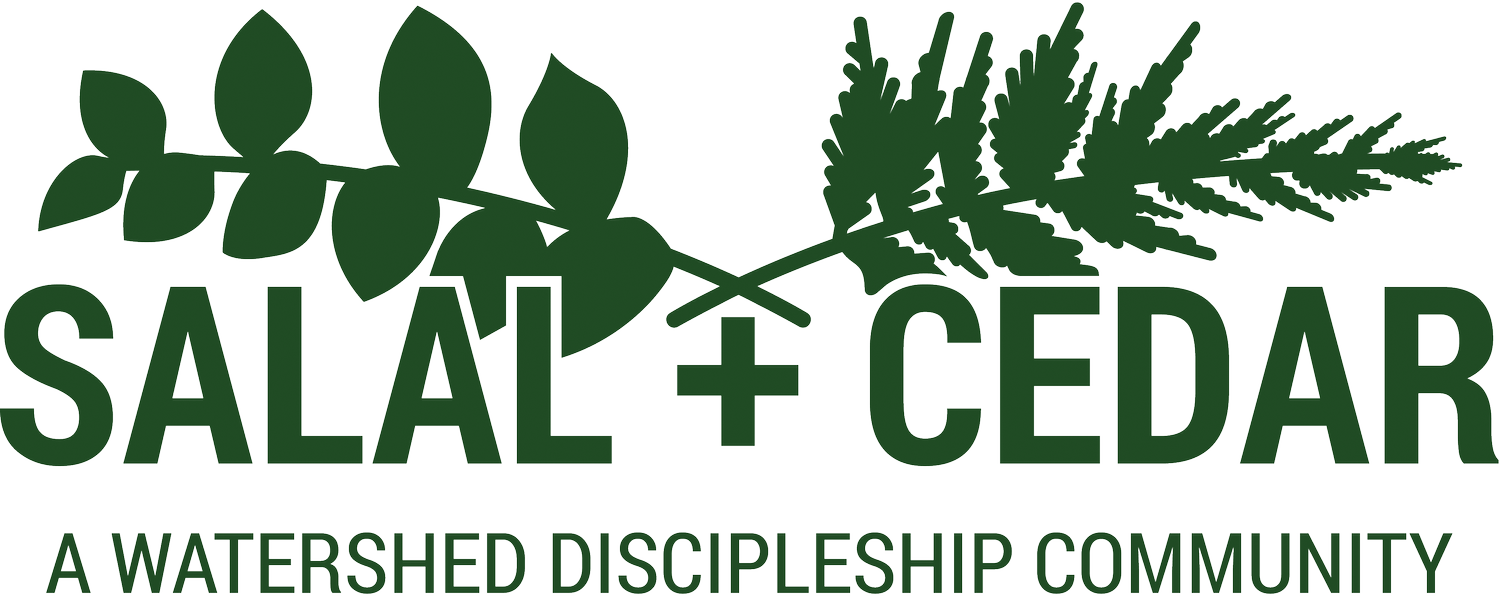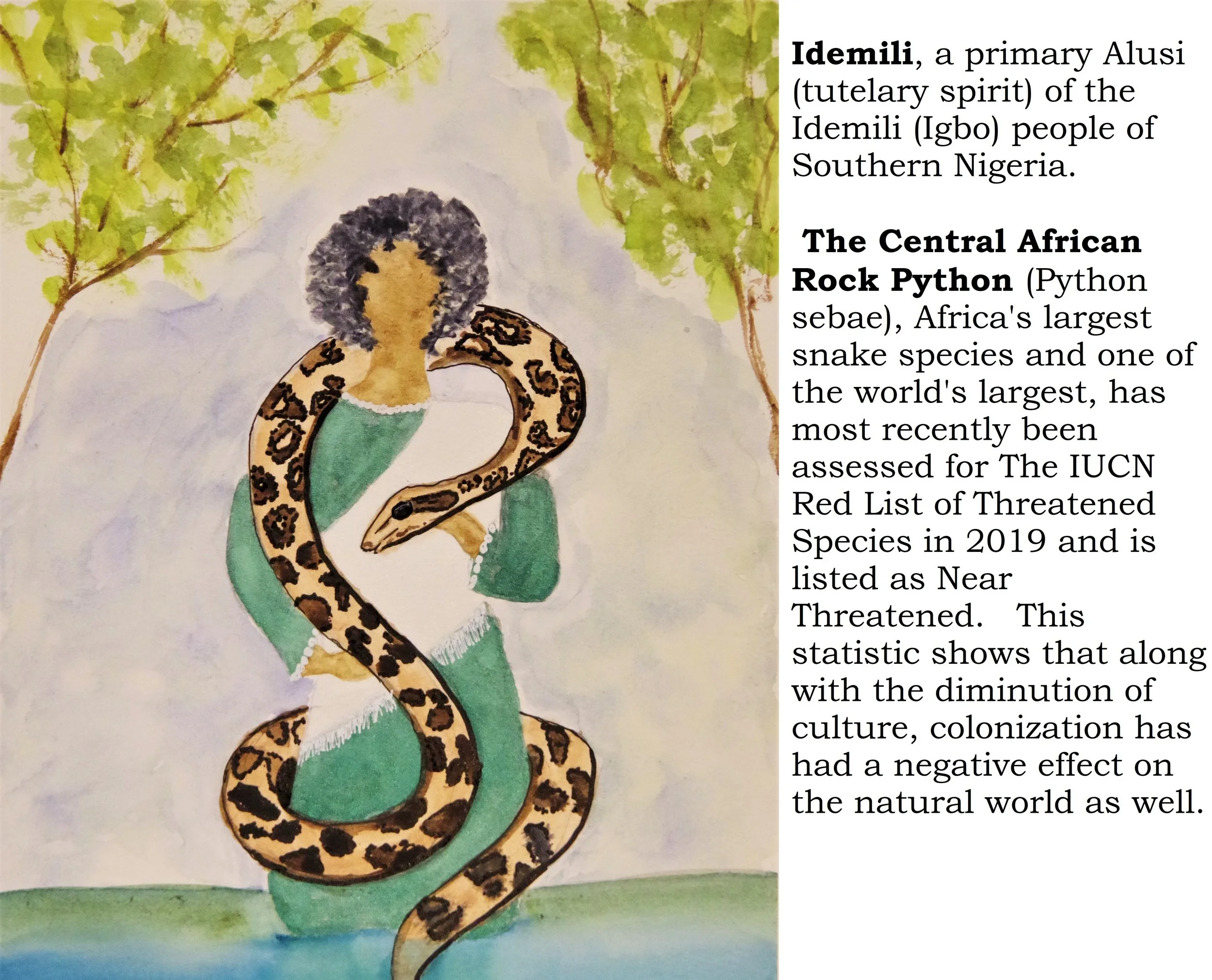Fourth Sunday in Lent, year ‘B’: Transformation
The theme running through today’s readings is transformation and its constituent elements: self-reflection, positive example, agency. The Sermon Starters at the end will give examples of how transformation and its components are a recurring necessity to our ongoing work in issues of justice for humanity and our more-than-human relatives.
Commentary
-
The first reading from numbers begins with the people in the wilderness complaining again about a lack of water and poor food. They are punished by being bitten by poisonous snakes. God tells Moses to make a poisonous snake “and set it on a pole, and everyone who is bitten shall look at it and live.”
I struggled with this. Isn’t the snake on a pole an idol? Author Alan Gilman asks another question, “How could it be that the object which was the source of pain could end up being the source of healing?” Gilman answers the question suggesting that calling on the Israelites to look at the source of their pain resulted in healing because they were forced to acknowledge the consequences of their Gilman answers the question suggesting that by calling on the Israelites to look at the source of their pain resulted in healing because they were forced to acknowledge the consequences of their behaviour. "While God is the agent of healing, true repentance requires we accept responsibility for our behavior." "While God is the agent of healing, true repentance requires we accept responsibility for our behaviour" (Torah Bytes). Similarly, Rabbi Yirmiyahu Ullman states, "By looking at the snake and then upward, they repented and then re-affirmed their trust in G-d and His healing power, and were cured. "This is the start of transformation, self reflection.
Self-reflection on where we stand on ecological issues, such as, how do we balance the loss of livelihood for forestry workers with the need to save old growth forests and wildlife habitats? Perhaps, finding out and evaluating the positions of all concerned groups: Indigenous People, forestry workers, innovative ecologically minded forest and wildlife experts/scientists, ecological justice advocates and government. Once we’ve done this, we can spend time discerning where our gospel values call us to place our energies to bring about a just outcome where all flourish. Self-reflection takes work but creation is worth it.
-
Psalm 107 is a hymn of thanksgiving to God for four occasions when his intervention delivered people from adversity. Verses 1-3 contain a refrain of thanksgiving to God for continually saving the people. Verses 17-22, recounts in song what took place in Numbers 21:4-9.
The Psalm reminds us of what God has done for us. I would venture that it suggests that we should show our gratitude by preserving God’s gifts. It implies that sharing God’s gifts means acting with a mind of abundance and sharing rather than out of scarcity and hoarding.
-
The authorship of Ephesians is a subject of debate for New Testament scholars. However, that does not impugn the message of Ephesians, which is a vision of a universal church.
According to God’s eternal plan for humanity, Christ’s death brought together Jews and Gentiles into a new, unified community: the Jewish law, which previously divide Jew from Gentile, was rendered irrelevant by the cross, and Christ this reconciled both groups to each other and to God. … (H)uman existence is beset by the malevolent influence of demonic beings. Christ has been given power over them, and through God’s grace human beings are freed from their immoral and deceitful influences. (Jewish Study Bible p. 2053)
“ 8 For by grace you have been saved through faith, and this is not your own doing; it is the gift of God— 9 not the result of works, so that no one may boast.” These verses are an exhortation to the Jewish followers of Christ that their “works of the law” do not make them better than or more grace-filled than the Gentiles, because God’s plan is for us to live the way of life as taught to us through Jesus, which is according to God’s plan. Following Jesus’ teachings are the second step in transformation, positive example.
-
In today’s passage Jesus is talking to Nicodemus, who represents a group of Jewish leaders who hesitantly come to believe in Jesus. In the passage, Jesus refers to Moses and the events with the serpent. The Israelites had a symbol of salvation to remind them of the teaching of the Law. Anyone who turned toward it was saved, not by what they saw, but by God. Jesus, lifted up, becomes the source of salvation to all, whoever sees Jesus, sees the God (Raymond Brown). John tells us, “God did not send the Son into the world to condemn the world but in order that the world might be saved through him.” The teachings of Jesus show us the way we are to live.
To the giving of God’s spirit there must correspond on the part of the believer an acceptance in faith and a new way of life. But the gift of the Spirit of God is primary, for it is that Spirit, the Spirit of truth, then enables [us] to know and believe. (Raymond Brown)
Today’s gospel gives us the third step, agency. “But those who do what is true come to the light, so that it may be clearly seen that their deeds have been done in God.” Transformation doesn’t come about by saying one believes but on acting on that belief. Matthew 25:31-46, is one of the stellar examples of Jesus giving the recipe for acing on our belief. The subtitle, “The Judgement of the Nations”, implies that this exhortation is addressed to not only to individuals but to governments.
Teaching / Preaching Helps
Christian Zionism
When we look at what is going on in Jesus’ homeland to the people of Gaza, how can we stay silent? Jesus taught peace. Jesus preached peace. As followers of Christ, it is our Christian duty to call for our governments to sue for peace and the cessation of genocidal policies.
Some of may think this is an issue that began on October 7th, 2023. However, all of us need to dig deeper and learn about what brought us to this sad situation. When we delve into the matter we learn that the motivating factors at the heart of the discord include, the issue is colonialism and the religious/political concept of premillennialism embraced by Christian Zionists.
So called ‘Christian’ Zionists want unrest in the Middle East to bring about the second coming of Christ.
The 1967 Arab–Israeli War, the Israeli occupation of and Jewish settlement on Palestinian Territories, the Covid-19 pandemic, the move of the U.S. embassy to Jerusalem, the U.S. recognition of Israeli sovereignty over the Golan Heights and of Jerusalem as the Israeli capital, and other recent events are viewed by some evangelical theologians as potential “birth pains” associated with the soon return of Jesus Christ and the End of Days. (Inbari, Motti; Bumin, Kirill)
Christian Zionists believe the Covenant for Abraham for his descendants is to own the Land of Israel forever as stated in the Bible. However, what they ignore/forget is that Ishmael and his descendants are also descendants of Abraham.
However, the most important war that has to be fought to bring about Christ’s return begins in the heart. We need to nurture that Godseed within us by practicing love and compassion, not just for our group or tribe, but for all. Until we learn to love as God loves, we will be poisoned by our own venom. Let us look on the serpent within us and turn our hearts toward God and the Exemplar God sent to teach us and be transformed.
Save the Snakes
The pandemic, age and/or health issues prevent many of us from active climate justice activities. In 2020, during the change that Covid-19 imposed on all our lives, I became interested in watercolour painting. Most of my paintings were of endangered or threatened species. I wanted to bring awareness to the species I painted by posting them on social media with details about each species and the cause of the threats to their existence.
Currently, there are more than 157,100 species on The IUCN Red List, with more than 44,000 species threatened with extinction, including 41% of amphibians, 37% of sharks and rays, 36% of reef building corals, 34% of conifers, 26% of mammals and 12% of birds. (ICUN Red List)
In today’s readings from Numbers and the Gospel, we see snakes not just as a cause of death but also as a symbol of healing. From the middle ages to the present, the caduceus, which pictures two snakes entwined on a winged sword, has been a symbol of medicine. But what about our real-life current snakes? Wikipedia reports that the ICUN has assessed 97 species and one subspecies of snake as endangered.
Causes of extinction include habitat loss, habitat fragmentation, poaching, and climate change. All around the world, there are species of endangered snakes we should act to save. (Brandi, 2023)
Just as looking up and seeing the word and work of God in the serpent in Numbers, should we not fail to look down upon our endangered snakes as the work of God in need of our help? Endangered snakes don’t get much publicity so are not on our radar as much as the cute and cuddly or the large, strong and majestic species. However, we can grow our personal knowledge on endangered snakes and thus transform our apathy or unintentional ignorance of the plight of these children of God, our relatives, into compassionate action. Just picking one endangered species of snake to learn about and support. This surely would be “clearly seen that their deeds have been done in God.”
Sources and Resources
Allred, Brandi. 2023. AZ Animals. "10 Endangered Snakes We Should Act to Save". https://a-z-animals.com/blog/10-endangered-snakes-we-should-act-to-save/
Brown, Raymond E. The Gospel According to John I-Xii. 2021. New Haven & London: Yale University Press ; Bloomsbury Publishing.
Gilman, Alan, TorahBytes https://torahbytes.org/81-39/
Inbari, Motti; Bumin, Kirill. Christian Zionism in the Twenty-First Century: American Evangelical Opinion on Israel. Oxford University Press.
International Union for Conservation of Nature ICUN) Red List of Threatened Species. 2023. "Background & History". https://www.iucnredlist.org/about/background-history
Jewish Publication Society. 2014. The Jewish Study Bible Second ed. Oxford: Oxford University Press.
Paas, Steven. 2012. Christian Zionism Examined, Second Edition: A Review of Ideas on Israel, the Church, and the Kingdom. Resource Publications.
Ulman, Rabbi Yirmiyahu. "The Healing Serpent". Ohr Somayach. https://ohr.edu/2187
Author Bio
Rev. Dr. Victoria (Vikki) Marie, is the priest/chaplain of the Vancouver Catholic Worker and a member of Roman Catholic Women Priests Canada. She is the semi-retired priest of Our Lady of Guadalupe Tonantzin Community. Vikki is a late blooming artist, whose work can be seen at SisterSea Arts Profile and she is the author of Transforming Addiction: the role of spirituality in learning recovery from addictions, Saarbrücken: Scholar's Press (2014).

